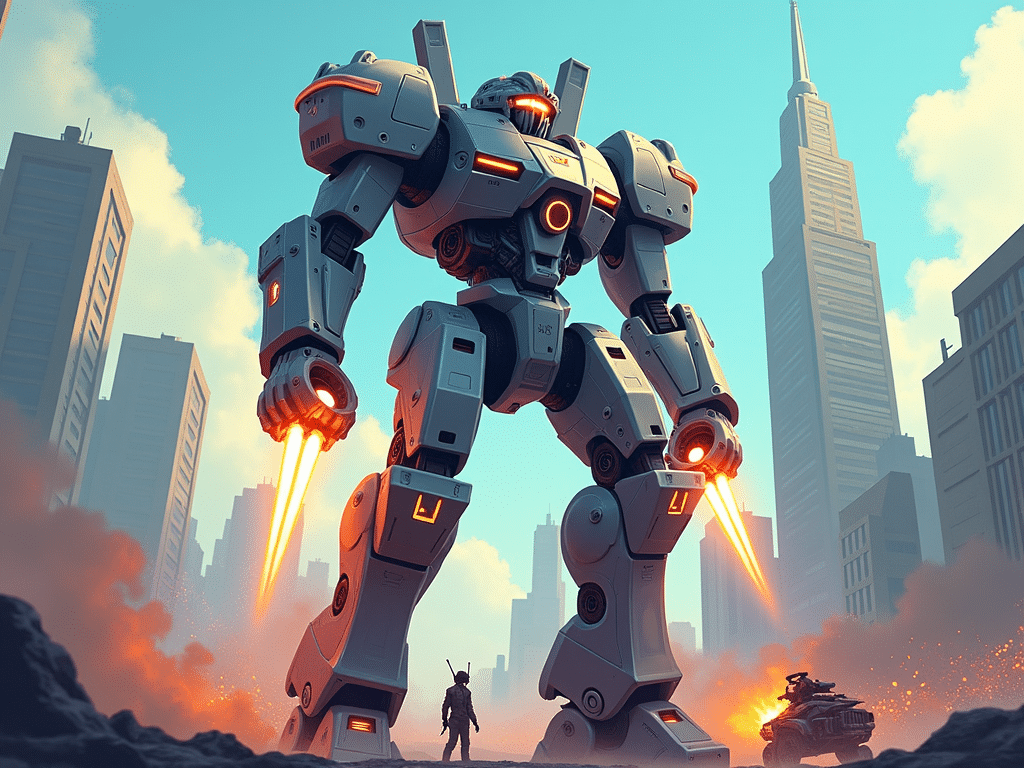When I first watched “Mobile Suit Gundam” as a teenager, I was instantly captivated by the idea of piloting a massive robot in epic battles. This fascination with mecha has stayed with me ever since, and I’ve spent years exploring this exciting genre. Let’s dive into the world of mecha and discover why these giant robots have become such a significant part of pop culture.
| Key Takeaways |
|---|
| Mecha are large, often humanoid robots or machines typically piloted by humans |
| The concept originated in Japanese anime and manga but has spread globally |
| Mecha appear in various media, including anime, video games, and movies |
| Popular mecha include Mechagodzilla, Mecha Sonic, and designs from Gundam series |
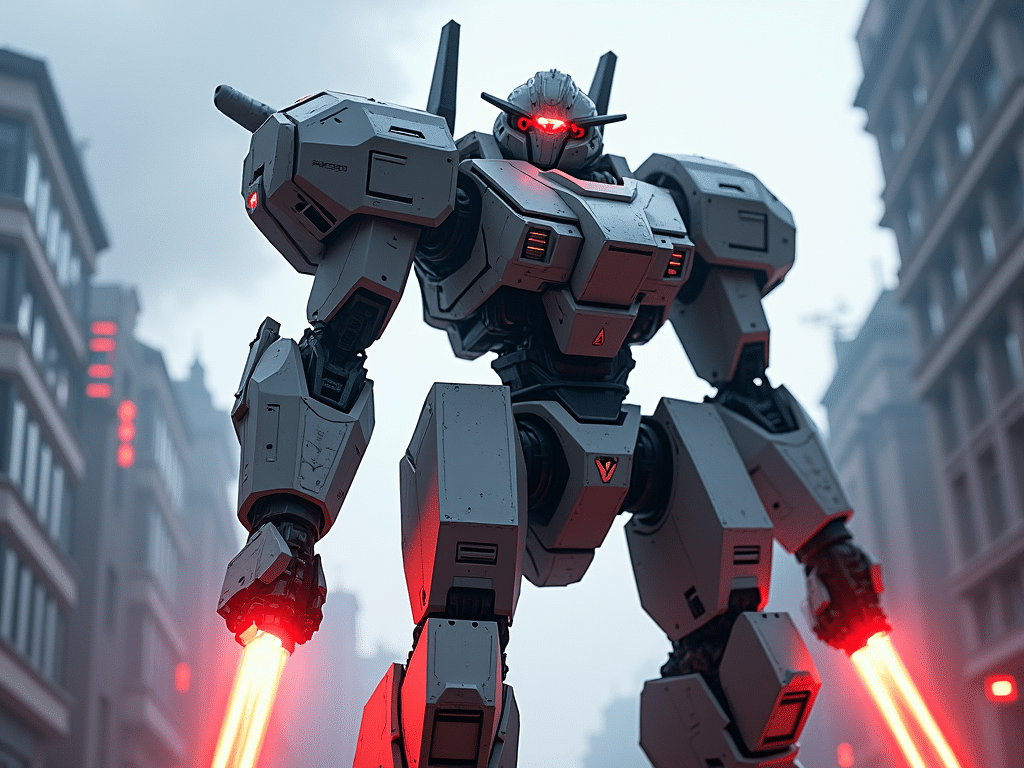
What is Mecha?
Mecha, short for mechanical, refers to large robots or machines that are usually controlled by a pilot inside. These aren’t your typical robots; they’re often massive, humanoid, and packed with weapons and advanced technology. Here are some key features of mecha:
- Size: Usually much larger than humans, often towering over buildings
- Pilot-controlled: Operated from within by a human or humanoid pilot
- Advanced technology: Equipped with futuristic weapons and capabilities
- Diverse designs: Can range from humanoid shapes to more abstract forms
My favorite aspect of mecha is how they combine the human element with incredible technological power. It’s not just about the machine, but also about the skill and determination of the pilot inside.
Mecha refers to large robots or mechanical machines, typically humanoid in design, that are controlled by human pilots. Here are the key points about mecha:
- Definition:
- Mecha are giant robots or combat machines, usually with a humanoid shape
- They are piloted by humans, often from an internal cockpit
- Origins:
- The term “mecha” comes from the Japanese word “メカニカル” (mechanical)
- It became popular in Japanese anime and manga, especially in the 1970s-80s
- Key characteristics:
- Large size, often towering over buildings
- Advanced technology and weaponry
- Humanoid or semi-humanoid design
- Piloted by humans (distinguishing them from autonomous robots)
- Types:
- Super robots: Often unique, with special powers or abilities
- Real robots: More realistic, mass-produced machines (e.g., in Gundam series)
- Cultural impact:
- Major genre in anime and manga
- Influenced Western media (e.g., Transformers, Pacific Rim)
- Spawned video games, toys, and other merchandise
- Notable examples:
- Gundam series
- Neon Genesis Evangelion
- Mazinger Z
- Macross/Robotech
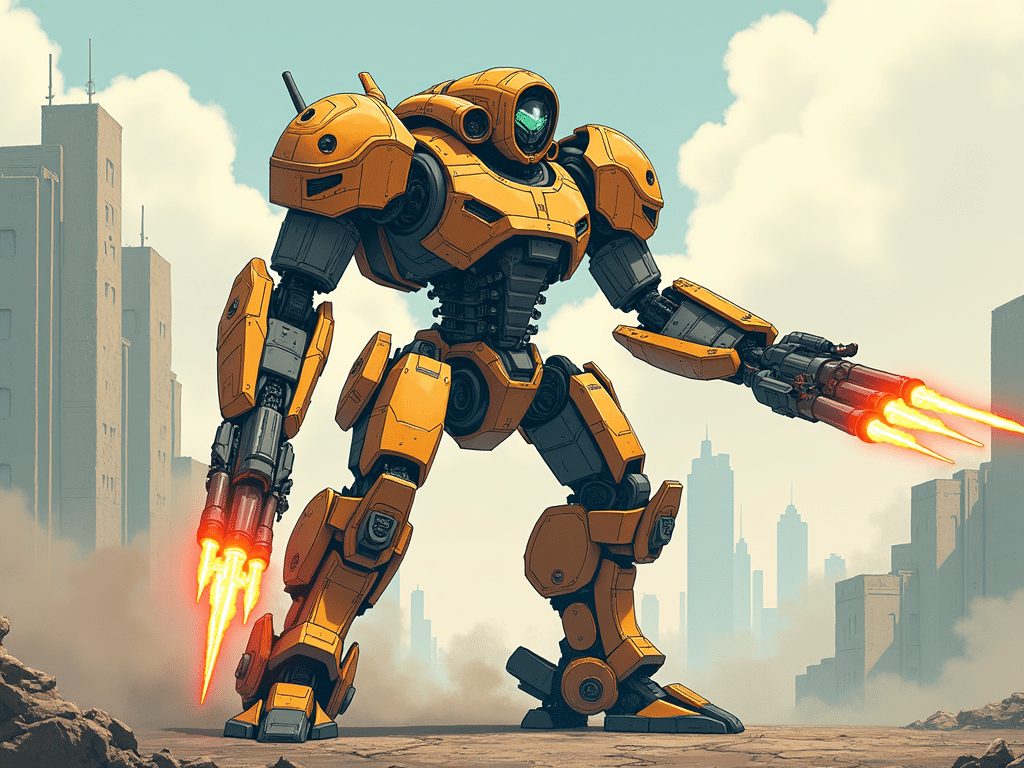
Mecha in Anime and Manga
Mecha has been a staple of Japanese anime and manga for decades. Some of the most influential series include:
- Astro Boy (1952): Often considered the grandfather of mecha anime
- Mobile Suit Gundam (1979): Revolutionized the genre with more realistic robot designs
- Neon Genesis Evangelion (1995): Brought psychological depth to mecha stories
Also read: HAWK TUAH Meaning
Iconic Mecha Characters
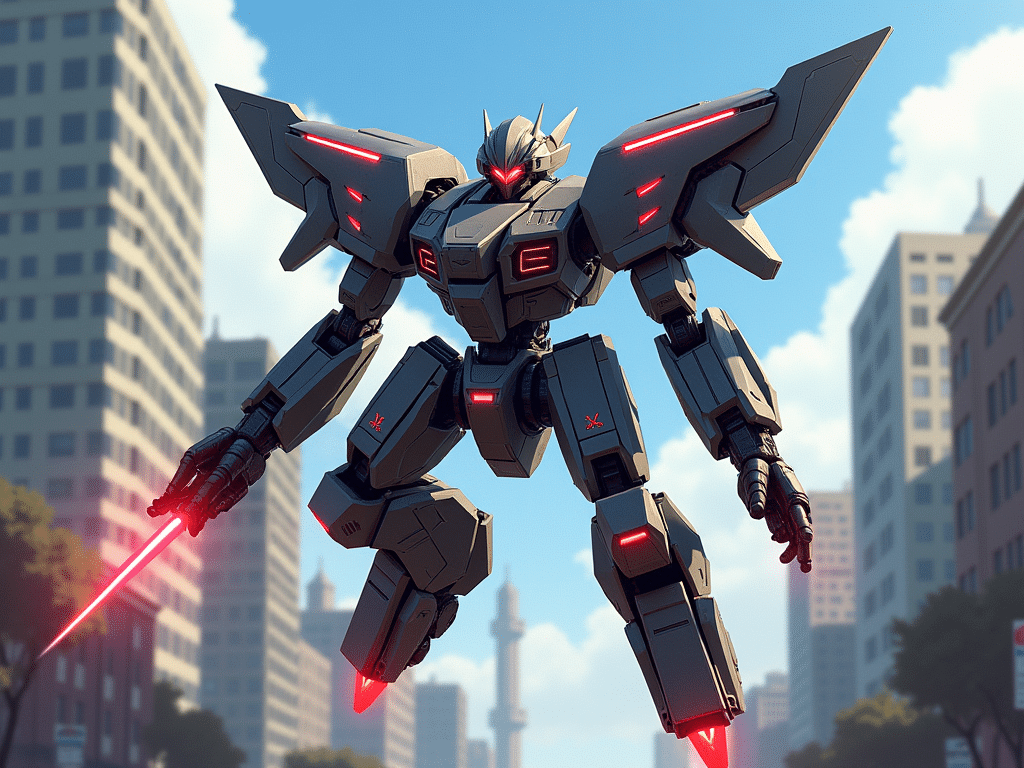
Some mecha have become cultural icons in their own right. Let’s look at a few famous examples:
Mechagodzilla
Mechagodzilla is a robotic doppelganger of the famous Godzilla. First appearing in the 1974 film “Godzilla vs. Mechagodzilla,” this metallic monster has been a recurring character in the Godzilla franchise. What I find fascinating about Mechagodzilla is how it represents humanity’s attempt to fight fire with fire, creating a mechanical version of the very threat they face.
Mecha Sonic
In the world of video games, Mecha Sonic is a robotic version of Sonic the Hedgehog. This character has appeared in several Sonic games, often as a formidable boss. Mecha Sonic showcases how the mecha concept can be adapted to various media and genres, even in a fast-paced platformer game.
Mecha King Ghidorah
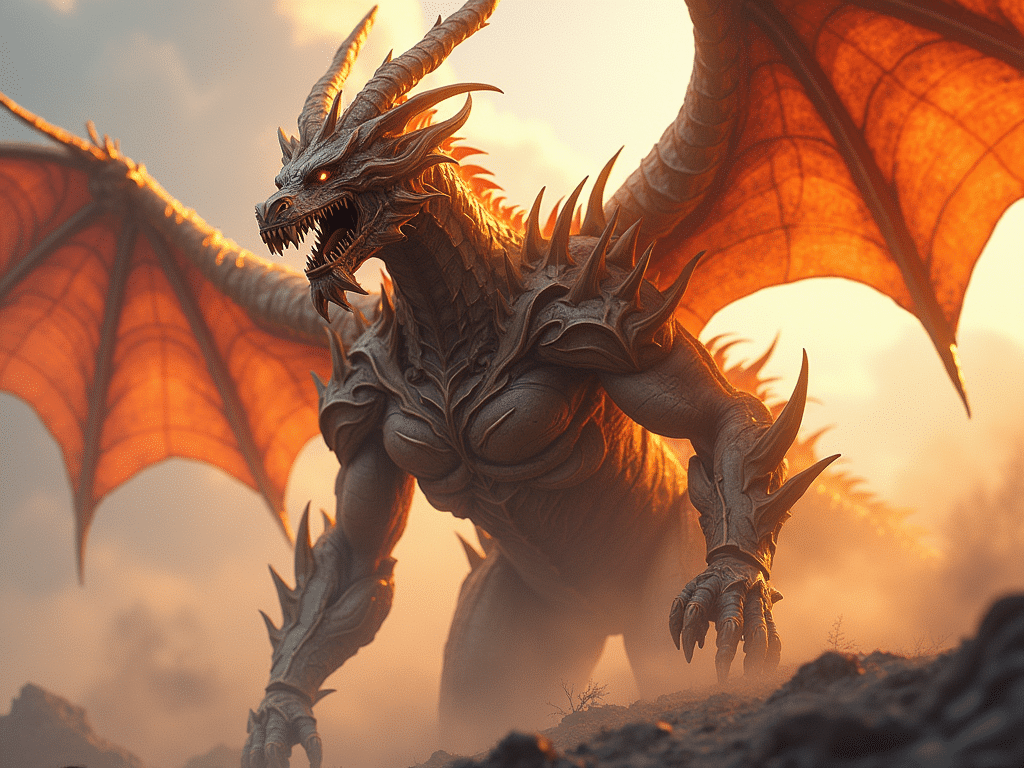
Another creation from the Godzilla universe, Mecha King Ghidorah is a cyborg version of the three-headed dragon King Ghidorah. This character demonstrates the versatility of mecha designs, combining organic and mechanical elements to create a truly unique and terrifying creature.
Mecha in Video Games
Video games have embraced the mecha concept wholeheartedly, offering players the chance to pilot these amazing machines themselves. Some popular mecha game series include:
- Armored Core
- MechWarrior
- Zone of the Enders
As someone who’s spent countless hours playing these games, I can attest to the thrill of controlling a powerful mecha in virtual battles. These games often allow for deep customization of your mecha, adding another layer of engagement for players.
Mecha in Western Pop Culture
The influence of mecha has spread far beyond its Japanese origins. Western media has embraced giant robots with open arms:
- Transformers: This franchise blends mecha with the concept of shape-shifting aliens.
- Pacific Rim: A Hollywood take on the kaiju and mecha genres.
- Power Rangers: Featuring “Megazords,” combining mecha elements with superhero tropes.
I remember being amazed by how seamlessly mecha concepts integrated into these Western productions, proving the universal appeal of giant robots.
Mecha Break: A New Frontier
“Mecha Break” is an emerging concept in the mecha genre, focusing on the psychological and physical toll of piloting these massive machines. While there isn’t a specific “Mecha Break” release date to point to, this theme has been gaining traction in recent years.
Key aspects of Mecha Break stories include:
- Pilot mental health
- The physical strain of mecha operation
- Ethical dilemmas of using mecha in warfare
This evolution in storytelling adds depth to the genre, exploring the human cost behind the spectacular battles.
Mecha Noodle Bar: Where Fiction Meets Food
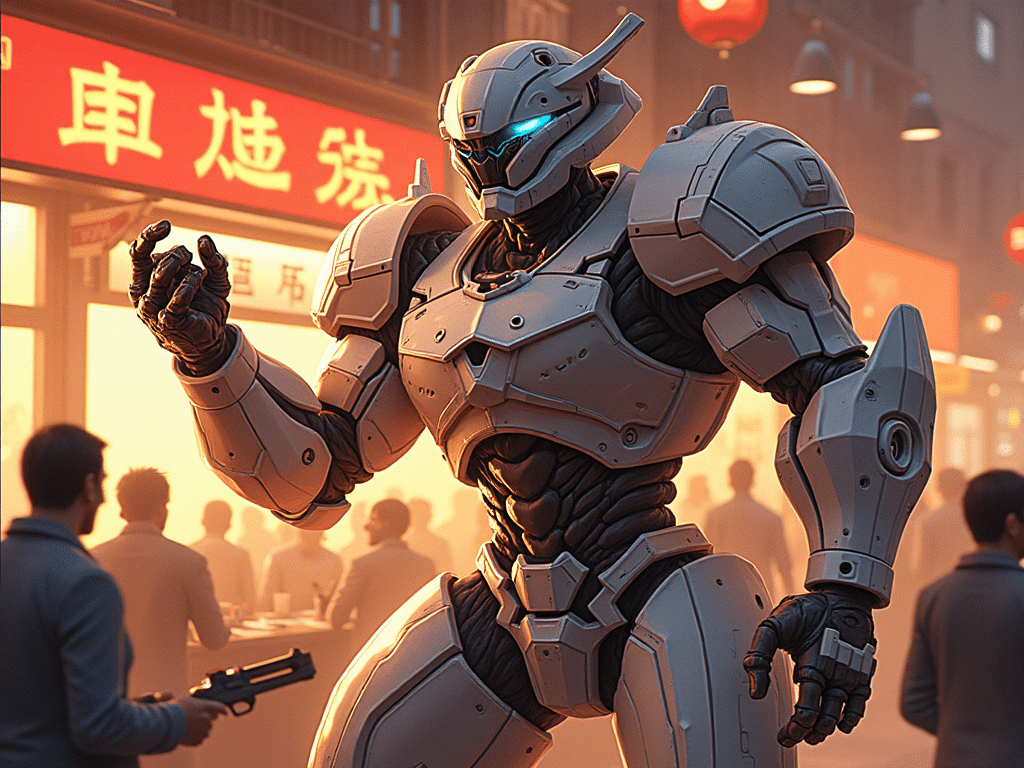
Interestingly, the popularity of mecha has even influenced the culinary world. Mecha Noodle Bar is a restaurant chain that combines Asian cuisine with a mecha-inspired atmosphere. While not directly related to the fictional mecha, it’s a fun example of how pop culture concepts can inspire real-world experiences.
The Future of Mecha
As technology advances, the line between science fiction and reality blurs. Some exciting developments include:
- Real-world mecha prototypes: Companies like Furrion Robotics are developing actual piloted mechs.
- Virtual Reality mecha experiences: VR technology is allowing for more immersive mecha piloting simulations.
- AI and autonomous systems: Future mecha stories might explore the role of artificial intelligence in giant robot warfare.
Conclusion
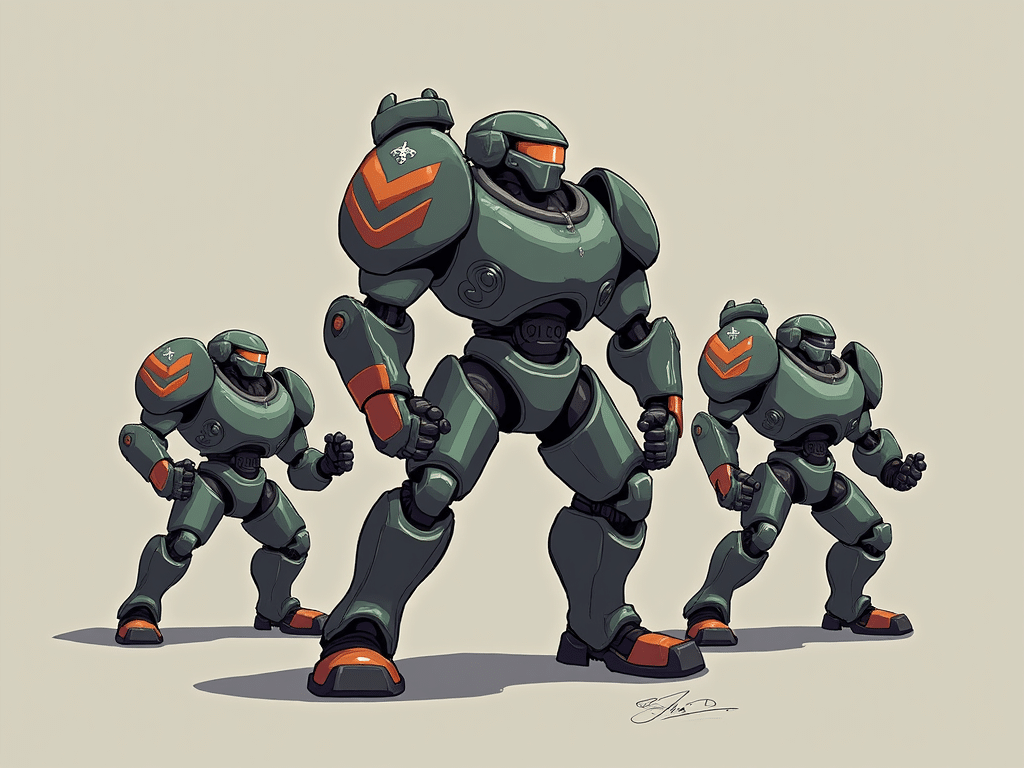
From its roots in Japanese anime to its global influence across various media, mecha has proven to be a versatile and enduring concept. Whether it’s the awe-inspiring designs, the thrilling battles, or the deep narratives exploring the relationship between humans and machines, mecha continues to capture our imagination.
As a lifelong fan, I’m excited to see how the genre will evolve. Will we see more nuanced storytelling like in Mecha Break? Or perhaps advancements in real-world technology will inspire new directions for fictional mecha? Whatever the future holds, one thing is certain: the allure of giant robots is here to stay.
FAQs
- What’s the difference between a mecha and a robot?
Mecha are typically large, piloted machines, while robots are often autonomous or remotely controlled. - Are there any real mecha being developed?
While not as advanced as their fictional counterparts, companies are developing large, piloted robotic suits for various applications. - What was the first mecha anime?
“Tetsujin 28-go” (Iron Man 28) from 1956 is often considered the first mecha anime. - Can I visit a Mecha Noodle Bar?
Yes, Mecha Noodle Bar is a real restaurant chain with locations in the United States. - Are all mecha humanoid in shape?
While many are humanoid, mecha designs can vary greatly, including animal-like or more abstract forms.
Whether you’re a longtime fan or new to the world of mecha, there’s always something exciting to discover in this genre. From the classic series that defined the concept to modern interpretations pushing its boundaries, mecha continues to be a fascinating blend of science fiction, technology, and human drama.

